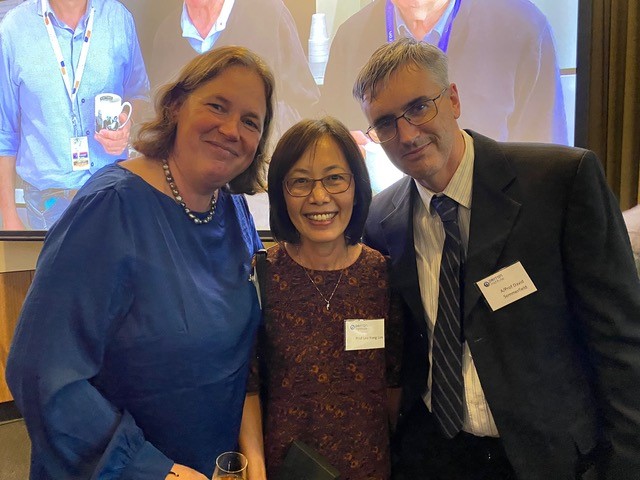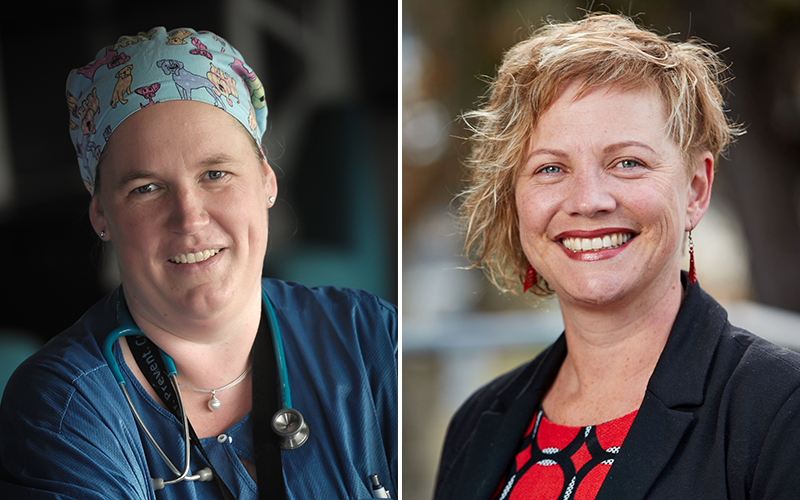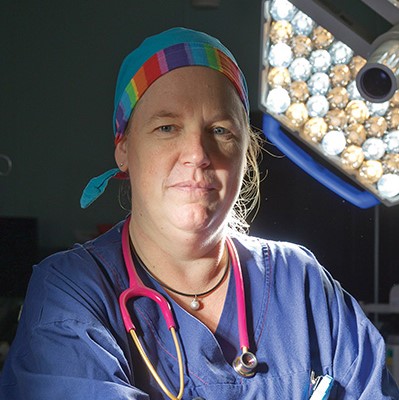Search
Research
High-flow nasal oxygen for children's airway surgery to reduce hypoxaemic events: a randomised controlled trialTubeless upper airway surgery in children is a complex procedure in which surgeons and anaesthetists share the same operating field. These procedures are often interrupted for rescue oxygen therapy.
Research
A randomised controlled trial of a novel tramadol chewable tablet: pharmacokinetics and tolerability in childrenTramadol is a bitter atypical opioid analgesic drug and is prescribed to treat postoperative pain in children. However, in many countries there is no licensed paediatric tramadol formulation available. We have formulated a novel chewable chocolate-based drug delivery system for the administration of tramadol to children.
Research
Penicillin allergy SHACK: Survey of hospital and community knowledgePenicillin allergy accounts for the majority of all reported adverse drug reactions in adults and children. Foregoing first-line antibiotic therapy due to penicillin allergy label is associated with an increased prevalence of infections by resistant organisms and longer hospitalisation.
Research
Complications associated with paediatric airway management during the COVID-19 pandemic: an international, multicentre, observational studyRespiratory adverse events in adults with COVID-19 undergoing general anaesthesia can be life-threatening. However, there remains a knowledge gap about respiratory adverse events in children with COVID-19. We created an international observational registry to collect airway management outcomes in children with COVID-19 who were having a general anaesthetic.
Research
Impact of airway and a standardized recruitment maneuver on CT chest imaging quality in a pediatric population: A retrospective reviewWhen performing computerized tomography chest imaging in children, obtaining high quality, motion-free images is important in the accurate diagnosis of underlying pathology. General anesthesia is associated with the development of atelectasis, which can impair accurate diagnosis by obscuring or altering the appearance of the lung parenchyma or airways.

News & Events
Inaugural Byron Kakulas medal awarded to Perioperative Medicine TeamA research team dedicated to making anaesthesia and surgery safer and more comfortable for babies and children has been awarded an inaugural Byron Kakulas Medal by WA’s Perron Institute.

News & Events
Paediatric anaesthetist named a WA Young Tall PoppyA leading paediatric anaesthetist and researcher focused on making anaesthesia safer and more comfortable for children has been named a 2022 Western Australian Young Tall Poppy.
Research
Behavioural and neuropsychological outcomes in children exposed in utero to maternal labour epidural analgesiaRecent studies report conflicting results regarding the relationship between labour epidural analgesia (LEA) in mothers and neurodevelopmental disorders in their offspring. We evaluated behavioural and neuropsychological test scores in children of mothers who used LEA.
Research
Mode of delivery and behavioral and neuropsychological outcomes in children at 10 years of agePrevious studies have reported that mode of delivery, particularly cesarean delivery is associated with neurodevelopmental outcomes in children. This study evaluates behavioral and neuropsychological test scores in children based on mode of delivery.

The Perioperative Medicine team has developed a unique chewable tablet that gives the child the sensation of having a full stomach, without compromising their fasting regime.
